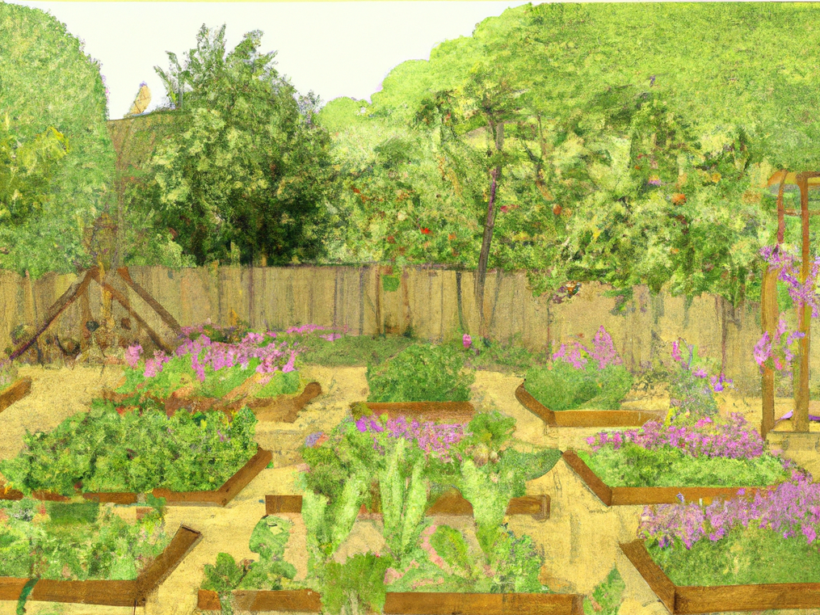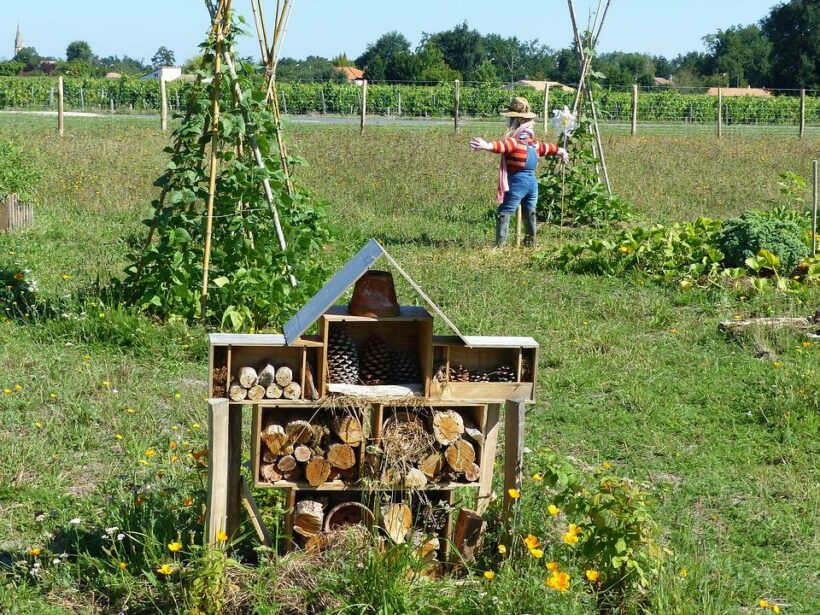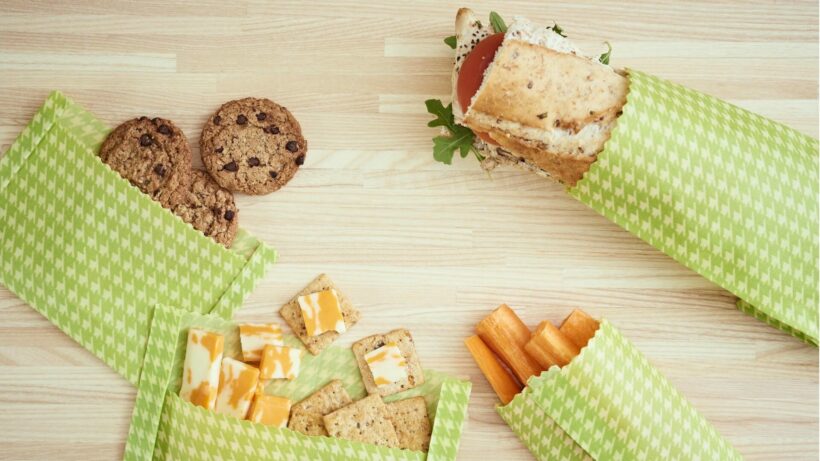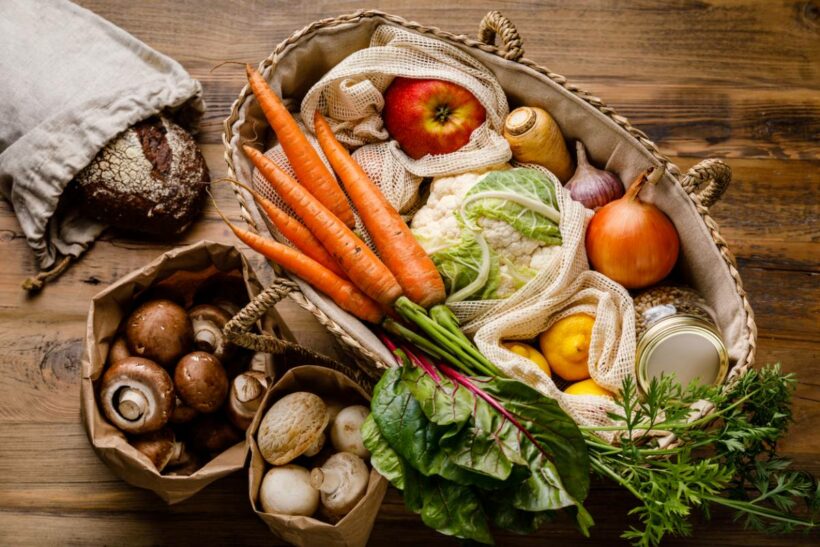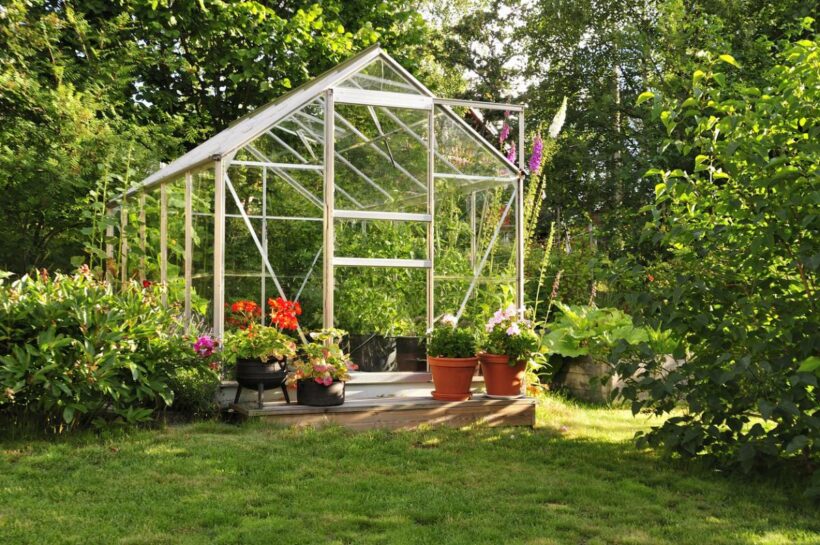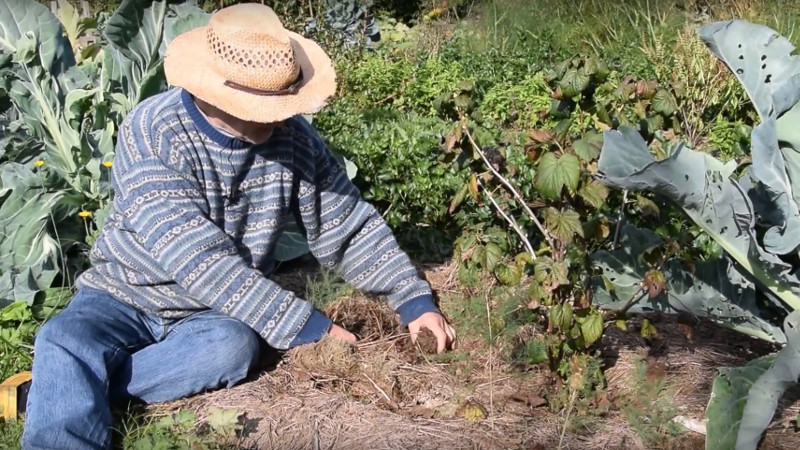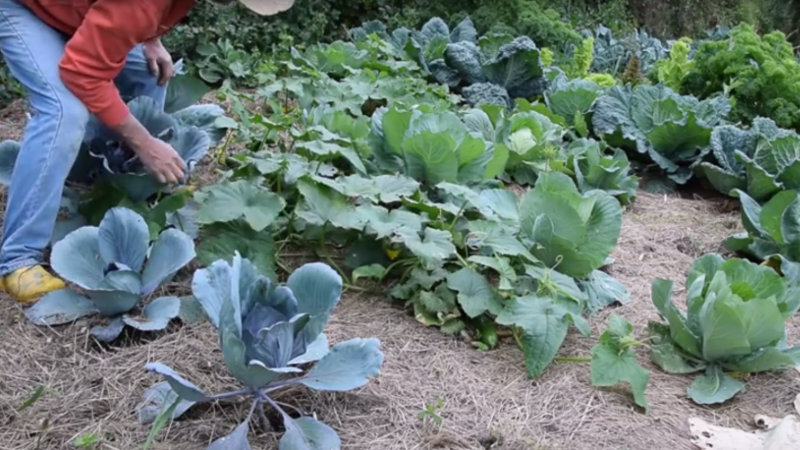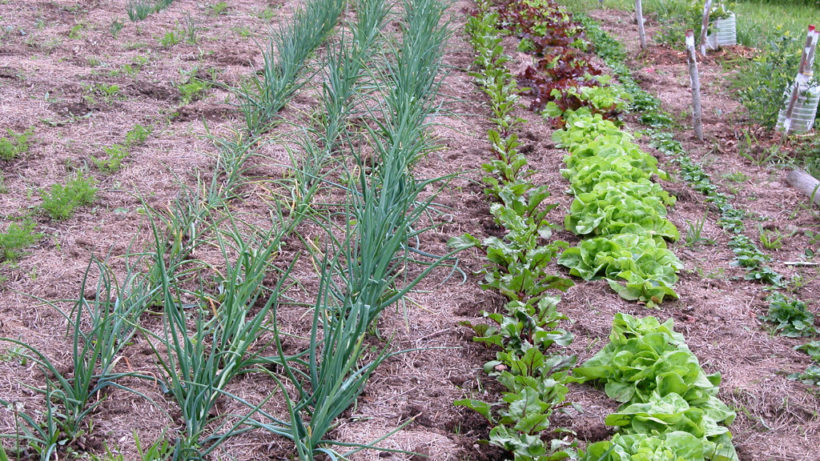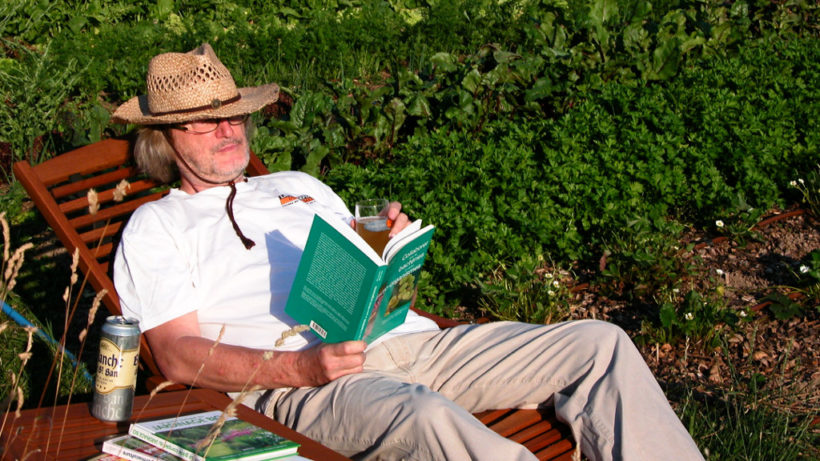In winter, the weather and the ambient temperature do not necessarily prompt us to think about planting. However, several actions can be carried out in the garden to help prepare for the coming season. The opportunity to take out your winter clothes and take a breath of fresh air which is beneficial for your health!! Harvesting winter vegetables If […]
Category: Agriculture and food
Food and Agriculture have a significant impact on the environment and our planet. So each inhabitant of rich countries "eats" about 2L of oil per day!
In our world today, it is therefore more than necessary to find sustainable alternatives to human food production!
So we developed on this site the technique called Sloth vegetable garden. It is an improved permaculture technique that makes it very easy to obtain quality fruits and vegetables without the use of any pesticides. The official name given is the phénoculture (from pheno: hay)
Improved agricultural techniques, debates on GMOs, livestock, fruits and vegetables (vegetable garden), pollution, pesticides and fungicides ...
Forum of sustainable agriculture
Cultivating your vegetable garden without having a garden? Solutions exist and our vegetable garden tips for the month of March
With the return of sunny days, and if you love nature, it is likely that an idea will start to run through your head: that of gardening!! Unfortunately in France, a third of households do not have access to a garden. However, we have good news if you are in this case: […]
The stages of creating a permaculture vegetable garden
With the arrival of spring temperatures, it is tempting to embark on the development of gardens and green spaces, or even that of a balcony vegetable garden. It is therefore the perfect time to recall the concept of permaculture, a mode of agriculture based on sustainable development, respectful of biodiversity and people and whose […]
All about the Bee Wrap and its zero waste instructions
A true ally for a zero waste routine, the bee wrap is causing a stir among food packaging today. It is not only popular for the aesthetics of its patterns but also for its reusable and ecological aspect. What is a bee wrap? How to use it? How to preserve its durability? Here is what to answer […]
Organic lifestyle: tips for saving money
Faced with the dangers that threaten the planet, in particular global warming and pollution, it is necessary to adopt good habits to avoid any risk. The organic lifestyle is proving to be one of the most effective ways to protect the planet. It allows you to save money, provided you know how to go about it. […]
Organic cotton t-shirt: why choose natural?
Dressing eco-friendly is essential when we realize that the textile industry is one of the most polluting in the world. Between the harmful materials used, transport, toxic residues left in nature and ethical problems (living conditions of workers, etc.), textiles are wreaking havoc. So many reasons that push us […]
Growing in a greenhouse in the garden: a good idea?
More and more individuals are choosing to grow their own fruits, vegetables and herbs themselves. This allows both to eat healthier, but also to save considerable money. Greenhouse cultivation offers many advantages in particular, by offering stable climatic conditions to your plants. But that's not his […]
Evolution of agricultural tractor technologies
Evolution of agricultural technologies in recent decades Agricultural tractors are among the equipment to have benefited from the mechanical innovations of the twentieth century. If the first models see the light of day at the end of the XNUMXth century, it will take a hundred years before they reach their maximum performance. The evolution of technologies will have facilitated the improvement […]
Plant VS Animal Protein: Health, Nutrition and Environment
Animal and plant proteins - Nutritional powers and environmental issues Proteins are water-soluble macromolecules used in the constitution of all organic tissue (bone, muscle, etc.). They physiologically perform the functions of hormones, enzymes and antibodies. While proteins exist in countless forms, all of them are made up of only a molecular assembly of 22 amino acids called proteinogens. […]
Extension of the authorization of Roundup (Glyphosate) for 5 years in Europe… We say thank you who?
In debate since 2015, Europe has today decided… towards the extension of the authorization of RoundUp despite the health risks for human health and wildlife. Indeed, the Member States agreed on Monday to re-authorize glyphosate for 5 years during an appeal committee after more than two years of intense debates on this herbicide […]
Growing a vegetable garden on a balcony, it is possible!
Spring finally arrived ! It's time to enjoy the first rays of sunshine and the blooming nature. For that, nothing better than to grow it yourself. No need to have a garden to have a corner of greenery, a balcony or a window sill will do the trick. Today, […]
Phenoculture, "official" name of the hay mulch permaculture technique developed for econology
Initiated in the spring 2014 on forums site, Didier Helmstetter's “permaculture” hay mulch technique is enjoying growing success both in terms of productivity results and popularity, with many gardeners testing the technique all over France ! As a reminder, this […]
Wolvendael Magazine: The Kitchen Garden Lazy, better than permaculture, Didier Helmstetter
The number 621 of Wolvendael Magazine of September 2016 devotes a 2-page article on the technique of the Potager du Laesseux. This article was written by Stève Polus (former editor-in-chief of the newspaper "Le Soir") and it is the very first written press article on the improved permaculture technique initiated and […]
Le Potager du Lazy, fruits and vegetables in August 2016
Le Potager du Paresseux, report for August 2016 by Didier Helmstetter (alias Did67) Caption of the introductory photo: “Didier, in front of his big cabbages! "The" Potager du Laesseux "is a way of producing vegetables" more than organic "(ie without any treatment products or fertilizers, neither organic nor, of course, chemicals) without tiring, […]
INRA: economic study of permaculture
INRA published a four-year study on the economic viability of organic permaculture. This study entitled “Permacultural organic market gardening and economic performance” shows that permaculture can be quite competitive economically compared to conventional intensive agriculture. The study was carried out on a fairly small area of 1000m², ie […]
Virtual video tour of the vegetable garden of the sluggard
Le Potager du Paresseux, virtual tour in video (s) by Didier Helmstetter (alias Did67) Caption of the introductory photo: “Didier, the lazy gardener, in the middle of… gardening! "The" Potager du Laesseux "is a way of producing vegetables" more than organic "(ie without any treatment or fertilizer, neither organic nor, of course, chemical) […]
Le Potager du Sloth: origin, objectives and principles Video
Le Potager du Paresseux, presentation video by Didier Helmstetter (alias Did67): its origin, its objectives and its principles… Caption of the introductory photo: "The owner of the Potager du Laesseux surprised at work… explanation! "The" Potager du Laesseux "is a way of producing vegetables" more than organic ", in abundance, without any labor […]
Le Potager du Laesseux by Didier Helmstetter (Did67), an effortless vegetable garden with hay
Didier Helmstetter's vegetable garden. How to garden effortlessly with hay, a “4 in 1” super-material Photos: Didier Helmstetter. Introductory photo: vegetables grown in soil that has never been worked - no spade, no pickaxe, no hoe, no grelinette… And of course, without using a tiller! The use of hay, instead of others […]
Le Potager du Paresseux: producing “more than organic” vegetables almost without work!
Le Potager du Laesseux, producing "more than organic" vegetables, almost without work, with yields equivalent to those of a classic garden with chemical treatments: a dream? Not with the "Potager du Laesseux"! DR photos: Didier Helmstetter. Introductory photo “The Sloth of the Vegetable Garden in action, its motto: less active ingredients; more […]
globalized agriculture: the model is to end, Olivier de Schutter
Extract (conclusion) from an interview published today in the world, to read here about the right to food in the world. By Olivier de Schutter (successor of Jean Ziegler). Find out more and debate I believed in the omnipotence of the State, today I believe in the omnipotence of democracy. I no longer think he […]
Meat consumption in France: developments since 40 years
Meat consumption in France: developments over the past 40 years and latest trends .pdf of 8 pages by FranceAgriMer, September 2010. Find out more: - Forum food and consumption - Meat consumption in the world - Meat, CO2 and globalization - Meat and CO2 - Debate on the ecological impact of meat consumption […]
Consumption of meat types in the world
Consumption of the different types of meat in the world: key figures in 2003 Summary document on meat consumption in the world and in the main developed and developing countries by tonnage and types of meat: cattle, sheep, pigs and poultry. In 2003, we consumed on average in […]
Agriculture: depletion and re-vitalization of the soil, Claude Bourguignon
Conference on erosion and biological impoverishment and techniques for revitalizing soils and arable land. by Claude Bourguignon Click on "Download" to watch the other parts of the conference. Find out more: Cultivate without plowing Gardening at home organically and without plowing TCS: soil conservation techniques Sustainable agriculture
Download: Agriculture, growing no-till and Culture Techniques Simplified
Synthesis on TCSL or TSL no-till cultivation techniques Synthesis carried out by V. Goldberg, EPN de Rambouillet No-till cultivation techniques took off in the 1930s to fight against wind and water erosion of soils in the Americas. Note that the replacement of the plow by the chisel or the cultivator […]
Download: Soil Conservation Agriculture
Video on Soil Conservation Techniques, in other words simplified cultivation techniques which require significantly less phytosanitary inputs, fertilizers and soil tillage. The goal: (re) obtain living soil! The yields are equivalent to those in conventional agriculture but with costs and (working hours) per hectare largely […]


